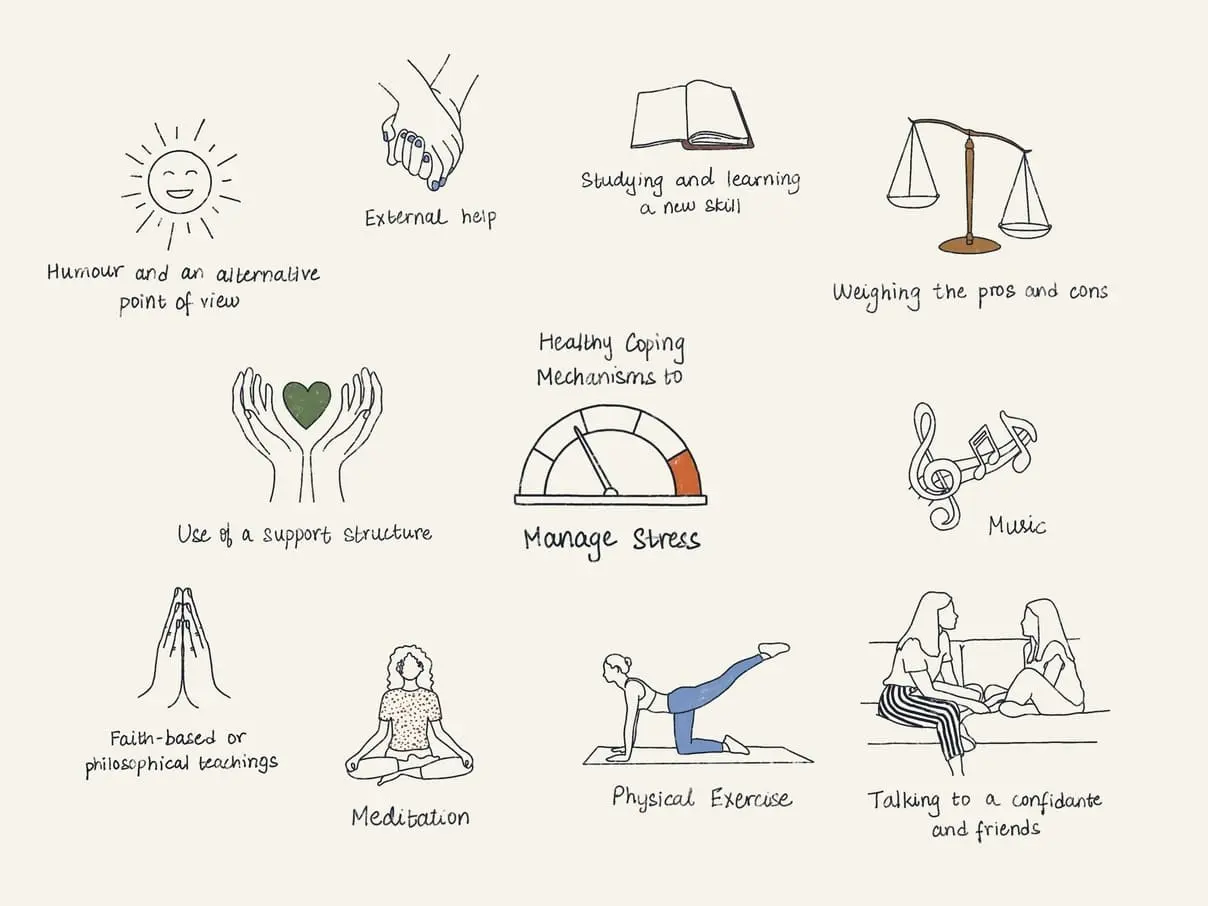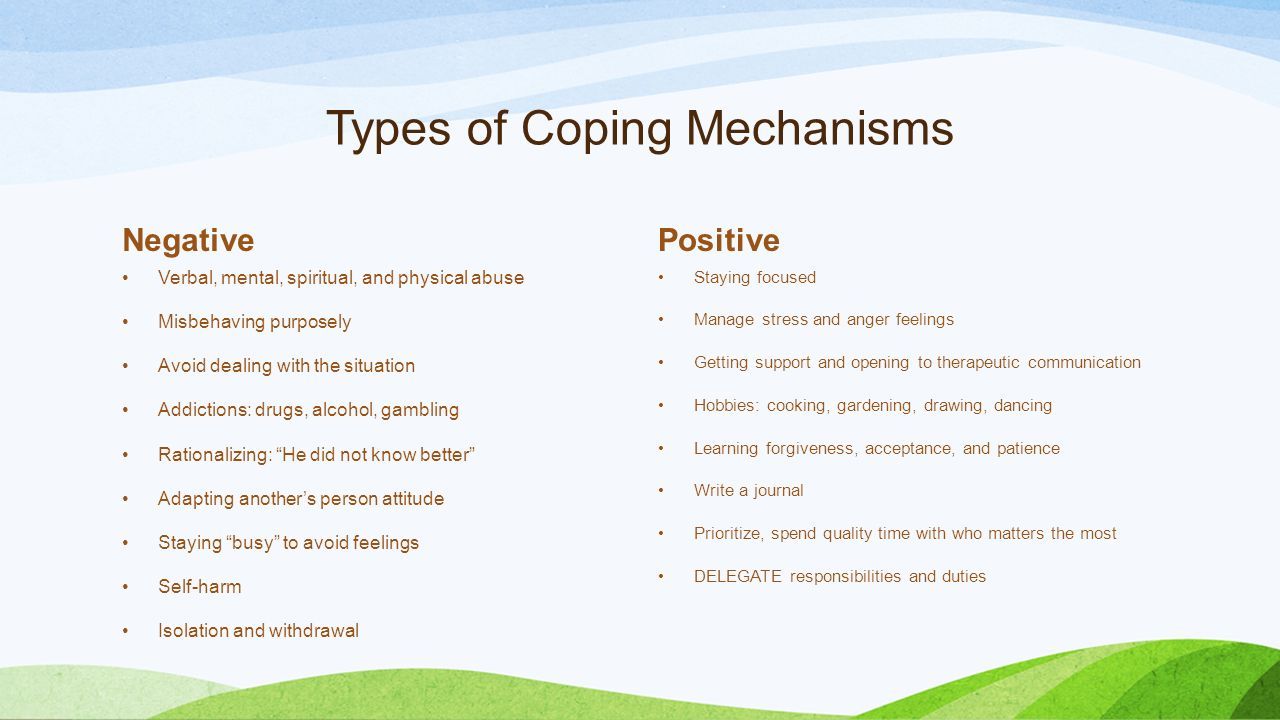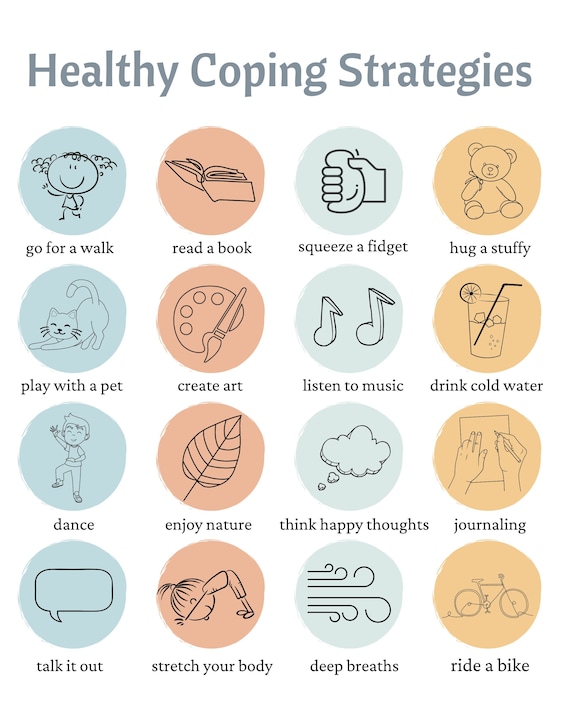“Healthy Coping Mechanisms: A Guide to Managing Stress and Promoting Well-being
Artikel Terkait Healthy Coping Mechanisms: A Guide to Managing Stress and Promoting Well-being
- The Future of Eye Care: AI Revolutionizes Vision Care Devices
- Calculate Your Insurance Loss Ratio: A Comprehensive Guide
- Discover the Best Homeowners Insurance Providers: Comprehensive Guide
- The Blueprint For A Vibrant Life: A Comprehensive Guide To Living Healthily
- Cutting-Edge AI Devices: Revolutionizing Neurological Disorder Management
Pengantar
Dengan penuh semangat, mari kita telusuri topik menarik yang terkait dengan Healthy Coping Mechanisms: A Guide to Managing Stress and Promoting Well-being. Mari kita merajut informasi yang menarik dan memberikan pandangan baru kepada pembaca.
Table of Content
Video tentang Healthy Coping Mechanisms: A Guide to Managing Stress and Promoting Well-being
Healthy Coping Mechanisms: A Guide to Managing Stress and Promoting Well-being

In the fast-paced and demanding world we live in, stress has become an inevitable part of life. From work pressures and financial worries to relationship issues and personal challenges, various stressors can impact our mental and emotional well-being. While stress cannot be entirely avoided, it’s crucial to develop healthy coping mechanisms to manage its effects and maintain a balanced and fulfilling life.
Coping mechanisms are the strategies people use to deal with stressful situations and regulate their emotions. These mechanisms can be either adaptive (healthy) or maladaptive (unhealthy). Healthy coping mechanisms help individuals navigate challenges, reduce stress, and promote overall well-being. On the other hand, unhealthy coping mechanisms may provide temporary relief but can lead to negative consequences in the long run.
This article explores the importance of healthy coping mechanisms and provides a comprehensive guide to various strategies that can help you manage stress, improve your mental and emotional health, and lead a more resilient and fulfilling life.
Why Healthy Coping Mechanisms Matter
Developing healthy coping mechanisms is essential for several reasons:
-
Stress Reduction: Healthy coping mechanisms help reduce the physiological and psychological effects of stress on the body and mind. By managing stress effectively, individuals can prevent or alleviate stress-related symptoms such as headaches, muscle tension, digestive issues, and sleep disturbances.

Emotional Regulation: Healthy coping mechanisms help individuals regulate their emotions and respond to stressful situations in a constructive manner. By developing emotional regulation skills, individuals can avoid emotional outbursts, impulsive behaviors, and unhealthy coping strategies such as substance abuse or self-harm.
-
Improved Mental Health: Healthy coping mechanisms contribute to improved mental health by reducing the risk of developing mental health disorders such as anxiety, depression, and post-traumatic stress disorder (PTSD). By managing stress and regulating emotions effectively, individuals can promote emotional well-being and resilience.
-
Enhanced Physical Health: Chronic stress can have detrimental effects on physical health, increasing the risk of cardiovascular disease, weakened immune system, and other health problems. Healthy coping mechanisms help reduce the impact of stress on the body, promoting physical health and longevity.
-
Improved Relationships: Healthy coping mechanisms can improve relationships by fostering effective communication, empathy, and conflict resolution skills. By managing stress and regulating emotions in a healthy way, individuals can avoid projecting their stress onto others and maintain positive relationships.

-
Increased Resilience: Healthy coping mechanisms enhance resilience, which is the ability to bounce back from adversity and adapt to change. By developing a repertoire of healthy coping strategies, individuals can navigate challenges with greater ease and emerge stronger from difficult experiences.

Types of Healthy Coping Mechanisms
There are various types of healthy coping mechanisms that individuals can use to manage stress and promote well-being. These mechanisms can be broadly categorized into the following:
1. Problem-Focused Coping
Problem-focused coping involves taking direct action to address the source of stress. This approach is most effective when individuals have control over the situation and can implement solutions to resolve the problem. Examples of problem-focused coping mechanisms include:
- Problem-Solving: Identifying the problem, brainstorming solutions, evaluating options, and implementing a plan of action.
- Time Management: Organizing tasks, prioritizing responsibilities, and setting realistic goals to reduce feelings of overwhelm.
- Seeking Information: Gathering information about the stressor to gain a better understanding and develop effective strategies for managing it.
- Assertive Communication: Expressing needs and boundaries assertively to address interpersonal conflicts and prevent future stressors.
2. Emotion-Focused Coping
Emotion-focused coping involves managing the emotional distress associated with a stressful situation. This approach is most effective when individuals have limited control over the situation and cannot directly address the source of stress. Examples of emotion-focused coping mechanisms include:
- Mindfulness Meditation: Practicing mindfulness meditation to cultivate awareness of thoughts, feelings, and sensations without judgment.
- Deep Breathing Exercises: Engaging in deep breathing exercises to activate the relaxation response and reduce feelings of anxiety and stress.
- Progressive Muscle Relaxation: Tensing and releasing different muscle groups to promote relaxation and reduce muscle tension.
- Journaling: Writing about thoughts and feelings to process emotions, gain insight, and reduce emotional distress.
- Creative Expression: Engaging in creative activities such as painting, drawing, writing, or playing music to express emotions and promote emotional release.
3. Social Support
Social support involves seeking support and assistance from others to cope with stress. This can include talking to friends, family members, therapists, or support groups. Examples of social support coping mechanisms include:
- Talking to a Trusted Friend or Family Member: Sharing feelings and experiences with a supportive person to gain perspective and emotional support.
- Joining a Support Group: Connecting with others who share similar experiences to receive encouragement, validation, and practical advice.
- Seeking Professional Help: Consulting with a therapist or counselor to receive guidance, support, and evidence-based interventions for managing stress and improving mental health.
4. Lifestyle Changes
Lifestyle changes involve adopting healthy habits and behaviors to promote overall well-being and reduce stress. Examples of lifestyle changes include:
- Regular Exercise: Engaging in regular physical activity to release endorphins, reduce stress hormones, and improve mood.
- Healthy Diet: Eating a balanced diet rich in fruits, vegetables, whole grains, and lean protein to nourish the body and support mental health.
- Adequate Sleep: Getting enough sleep to allow the body and mind to rest and recharge.
- Limiting Alcohol and Caffeine: Reducing or eliminating alcohol and caffeine consumption to avoid exacerbating anxiety and stress.
- Spending Time in Nature: Immersing oneself in nature to reduce stress, improve mood, and promote relaxation.
5. Cognitive Restructuring
Cognitive restructuring involves identifying and challenging negative or distorted thought patterns that contribute to stress and emotional distress. Examples of cognitive restructuring techniques include:
- Identifying Negative Thoughts: Recognizing and identifying negative thoughts that trigger feelings of stress, anxiety, or depression.
- Challenging Negative Thoughts: Questioning the validity of negative thoughts and evaluating the evidence for and against them.
- Replacing Negative Thoughts with Positive Ones: Substituting negative thoughts with more realistic, balanced, and positive ones.
- Practicing Gratitude: Focusing on the positive aspects of life and expressing gratitude for the things one has.
Choosing the Right Coping Mechanisms
The most effective coping mechanisms will vary depending on the individual, the nature of the stressor, and the specific situation. It’s essential to experiment with different strategies and identify those that work best for you. Here are some tips for choosing the right coping mechanisms:
- Assess the Situation: Evaluate the nature of the stressor and determine whether it’s something you can directly address or something you need to manage emotionally.
- Consider Your Personality: Choose coping mechanisms that align with your personality, values, and preferences.
- Experiment and Evaluate: Try different coping strategies and evaluate their effectiveness in reducing stress and improving your well-being.
- Be Flexible: Be willing to adjust your coping strategies as needed, depending on the situation and your changing needs.
- Seek Professional Guidance: If you’re struggling to manage stress or identify healthy coping mechanisms, consider seeking guidance from a therapist or counselor.
Conclusion
Healthy coping mechanisms are essential for managing stress, promoting emotional well-being, and leading a resilient and fulfilling life. By developing a repertoire of healthy coping strategies, individuals can navigate challenges with greater ease, reduce the impact of stress on their mental and physical health, and maintain positive relationships. Whether it’s problem-focused coping, emotion-focused coping, social support, lifestyle changes, or cognitive restructuring, there are various strategies that individuals can use to manage stress and improve their overall quality of life. Remember to experiment with different coping mechanisms, be flexible, and seek professional guidance if needed. With the right tools and support, you can effectively manage stress and thrive in the face of adversity.

Penutup
Dengan demikian, kami berharap artikel ini telah memberikan wawasan yang berharga tentang Healthy Coping Mechanisms: A Guide to Managing Stress and Promoting Well-being. Kami mengucapkan terima kasih atas waktu yang Anda luangkan untuk membaca artikel ini. Sampai jumpa di artikel kami selanjutnya!
